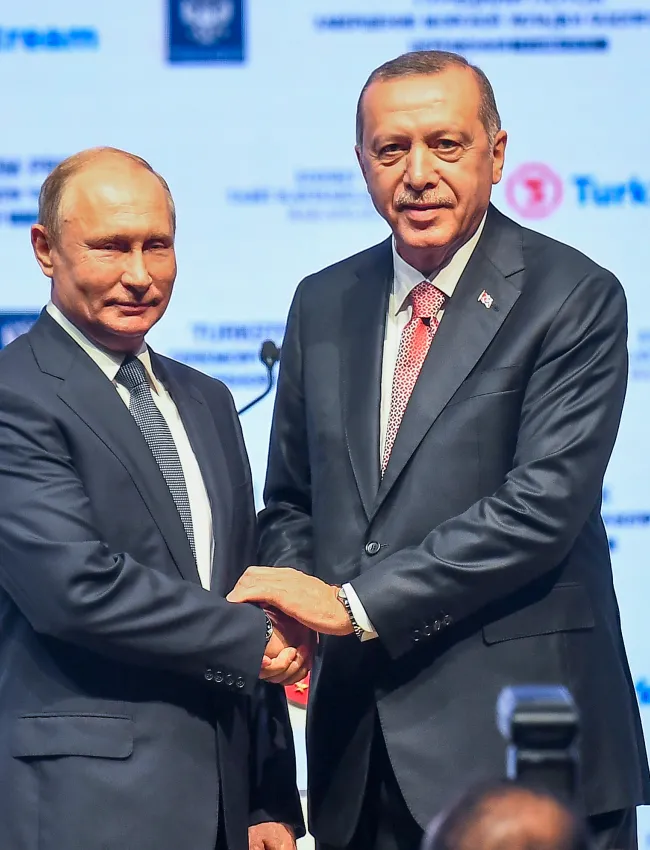Turkey-Russia Relations: Between Competition and Cooperation

9:00am - 10:30am EST
3:00pm - 4:30pm CET
4:00pm - 5:30pm EET
About this event
Turkish-Russian relations are characterized by competitive cooperation. While the two countries have conflicting interests in the Balkans, Caucasus, Central Asia, and the MENA Region, they have been able to accommodate each other on most of these regions and find avenues of cooperation in trade and economy.
Turkey’s downing of a Russian Su-24 on the Turkey-Syria border in December 2015 was one of the lowest points in the relationship. However, 2016 marked the beginning of a rapprochement process between the two countries, which led to Turkey’s acquisition of S-400 air defense systems, contracting its first nuclear plant to a Russian company, Russia facilitating Turkish incursions into areas in northeastern Syria previously controlled by the PYD-YPG, and the Astana process between Turkey, Russia, and Iran for managing the situation in Idlib. Even during this rapprochement process, Turkey and Russia have been at the opposite end of conflicts in Syria, Libya, and the Southern Caucasus. However, the countries were able to keep their newly emerging relationship intact not least because of the close personal relationship between presidents Erdoğan and Putin. It is not a surprise that these developments have caused great concern among Turkey’s NATO allies, and the United States imposed CAATSA sanctions on Turkey because of its acquisition of S-400 systems and removed Turkey from the F-35 program.
What are the main drivers of Turkish-Russian relations? What are their converging and diverging interests? Is the emerging relationship between Turkey and Russia conjunctural and transactional or is it gaining strategic elements? Last, but not the least, what does all of this mean for Turkey’s relations with its NATO allies?
If you have any questions, please contact Annika Vollmer at [email protected].
This online event is part of a series of events and analyses organized as part of the GMF-TOBB Fellowship on Turkey, Europe, and Global Issues launched by GMF in partnership with the Union of Chambers and Commodity Exchanges of Turkey (TOBB) in 2017.